Thoracic Spine
1/18
There's no tags or description
Looks like no tags are added yet.
Name | Mastery | Learn | Test | Matching | Spaced |
|---|
No study sessions yet.
19 Terms
manubrium
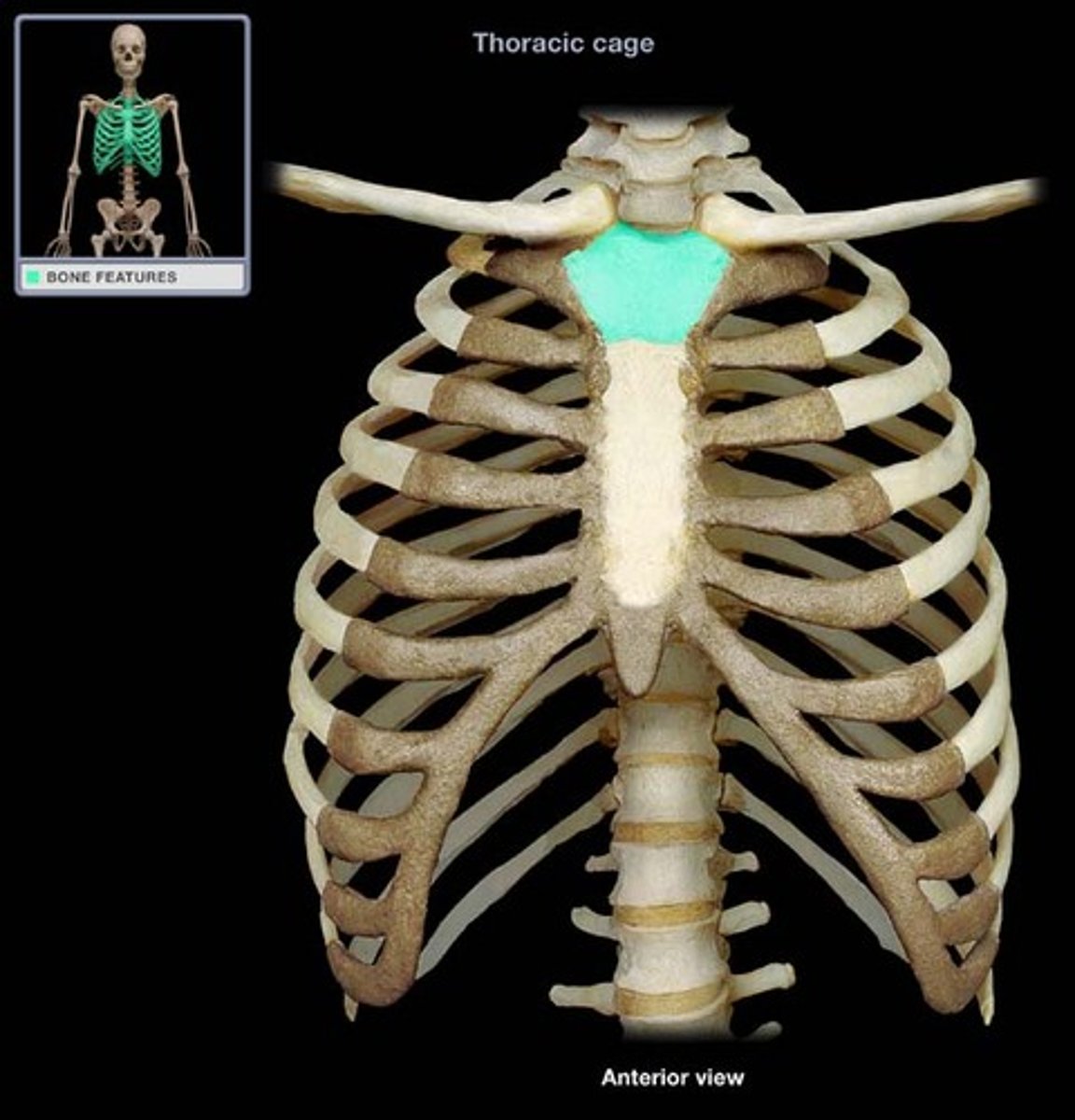
sternoclavicular joint
Articulation between the proximal clavicle and the sternum
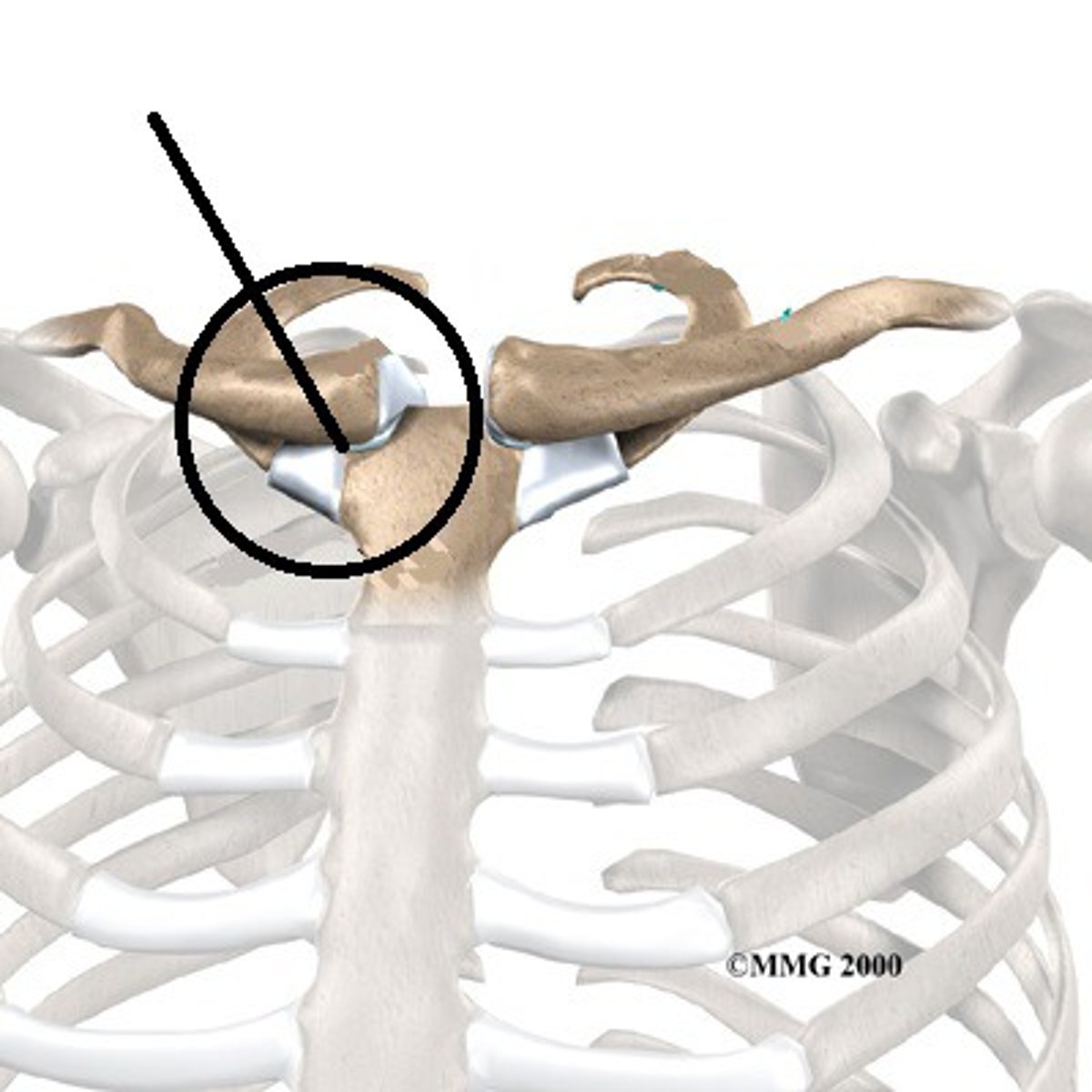
sternal angle
articulates with second rib: between the manubrium and body
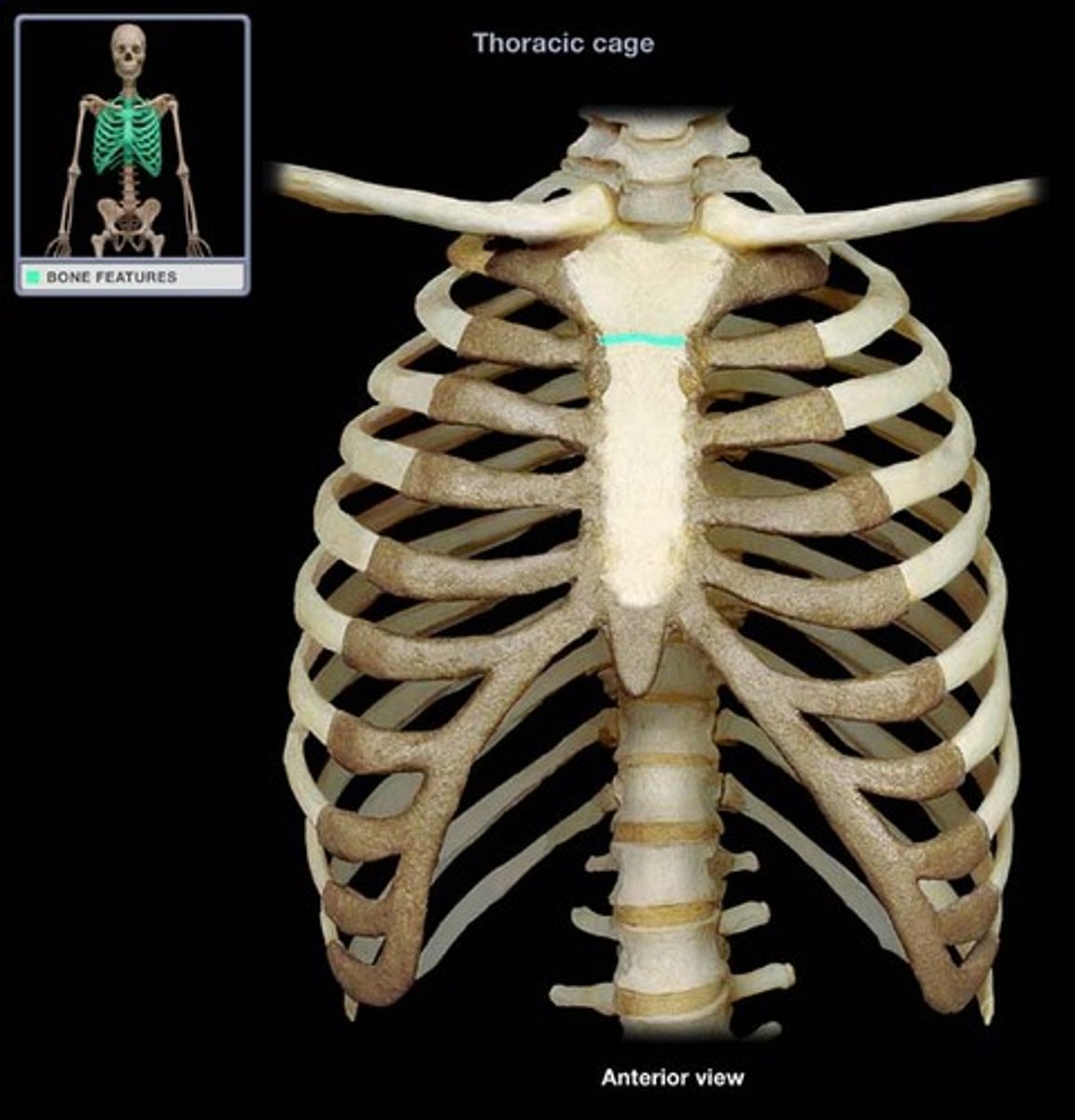
body of sternum
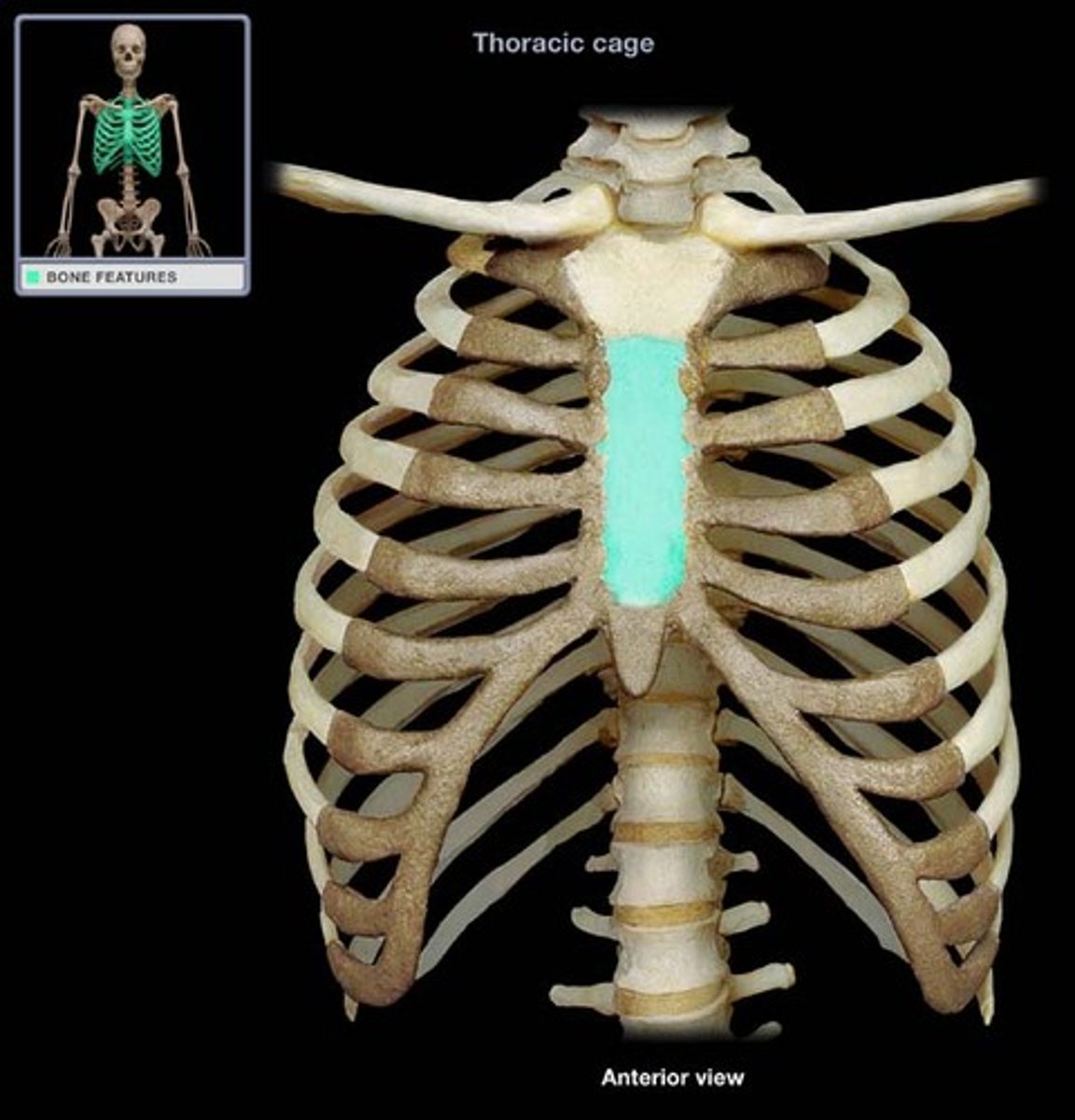
Xiphoid process of sternum
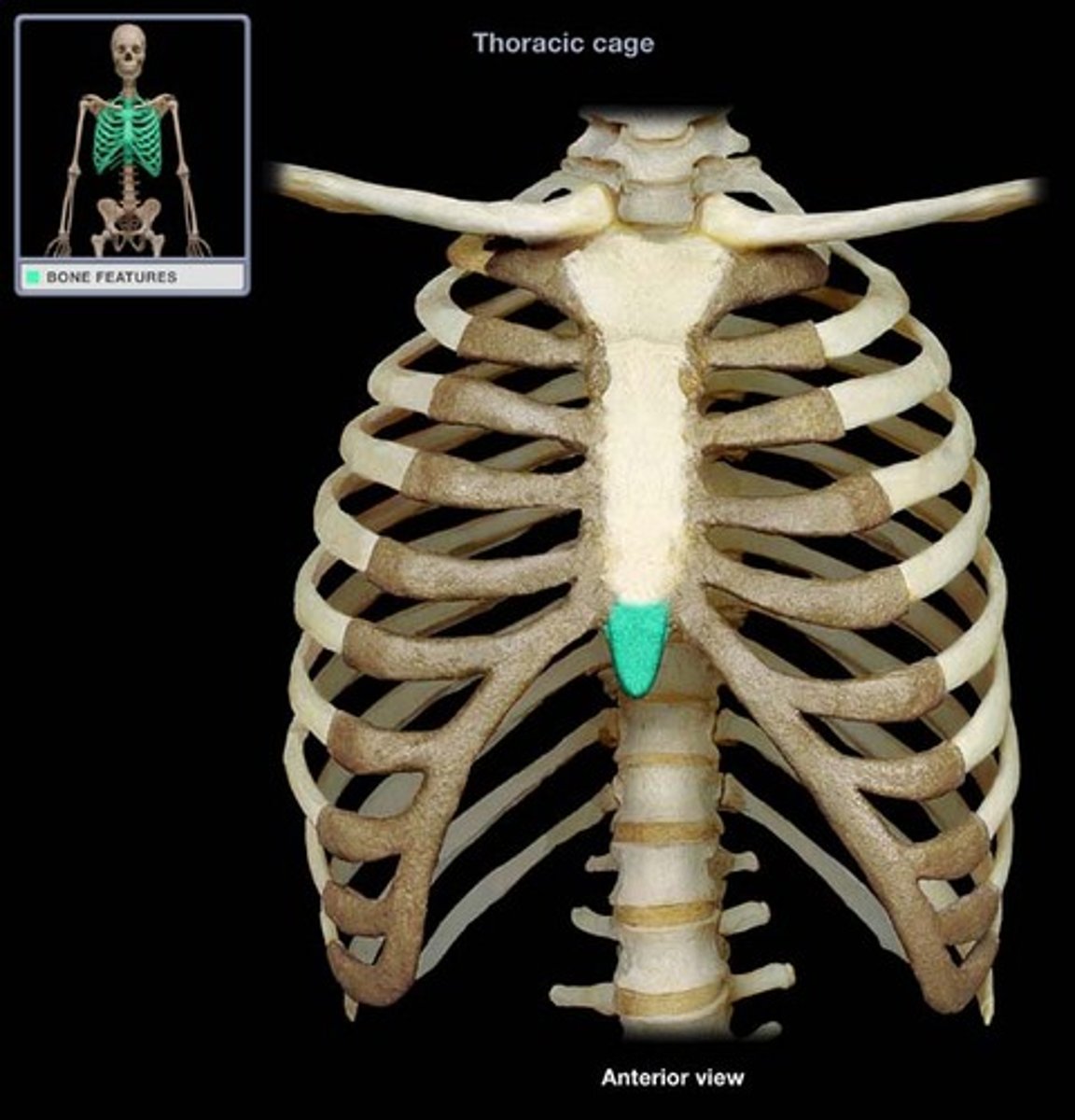
sternocostal joints
along the lateral aspect of the sternum: should feel a "step" when palpating from medial to lateral
palpate through 2-7
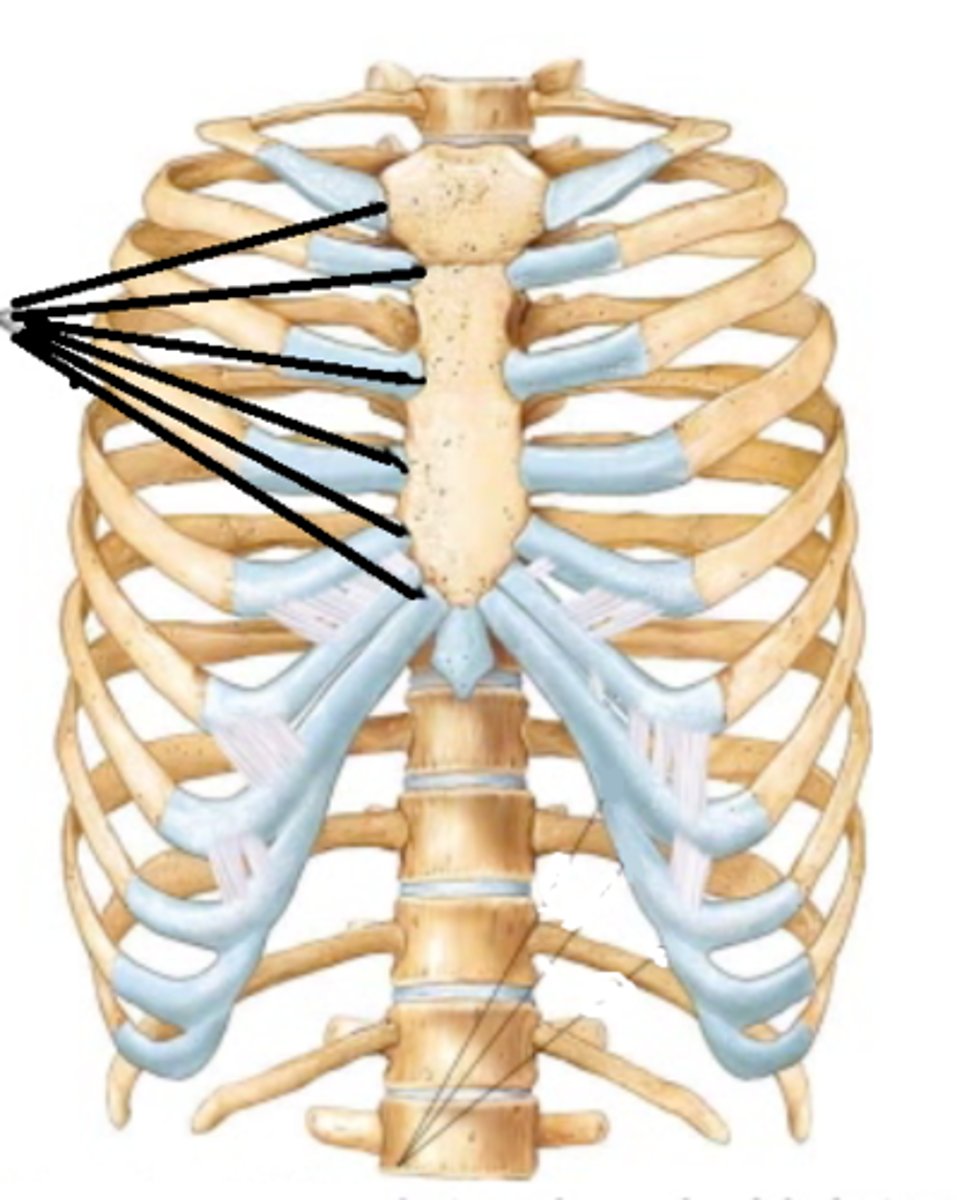
superior aspect of first rib
retract upper trap posteriorly and let finger land on top of first rib
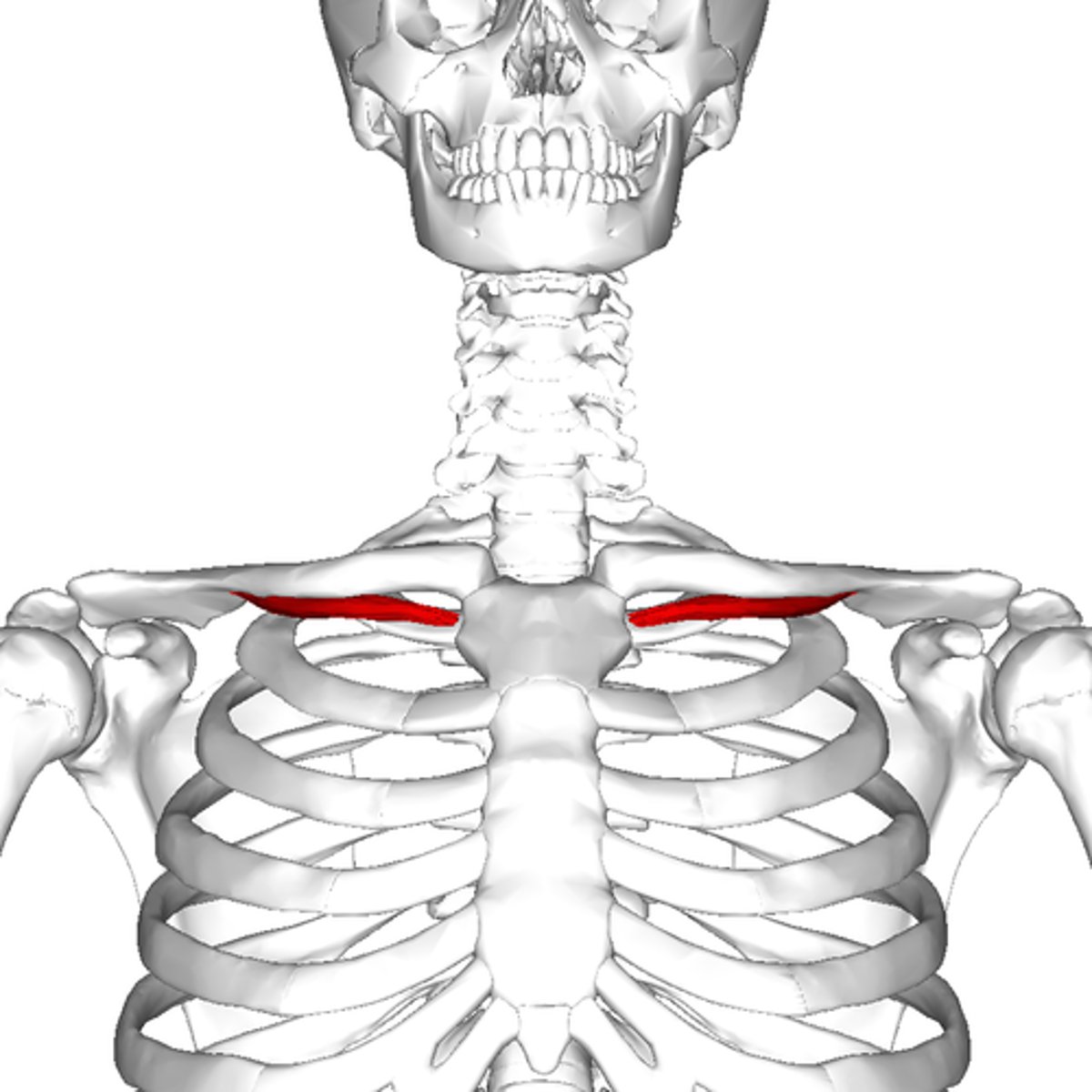
anterior aspect of 2nd rib
Move fingers approximately 1" laterally along clavicle from the sternoclavicular joint and then just inferior to the clavicle
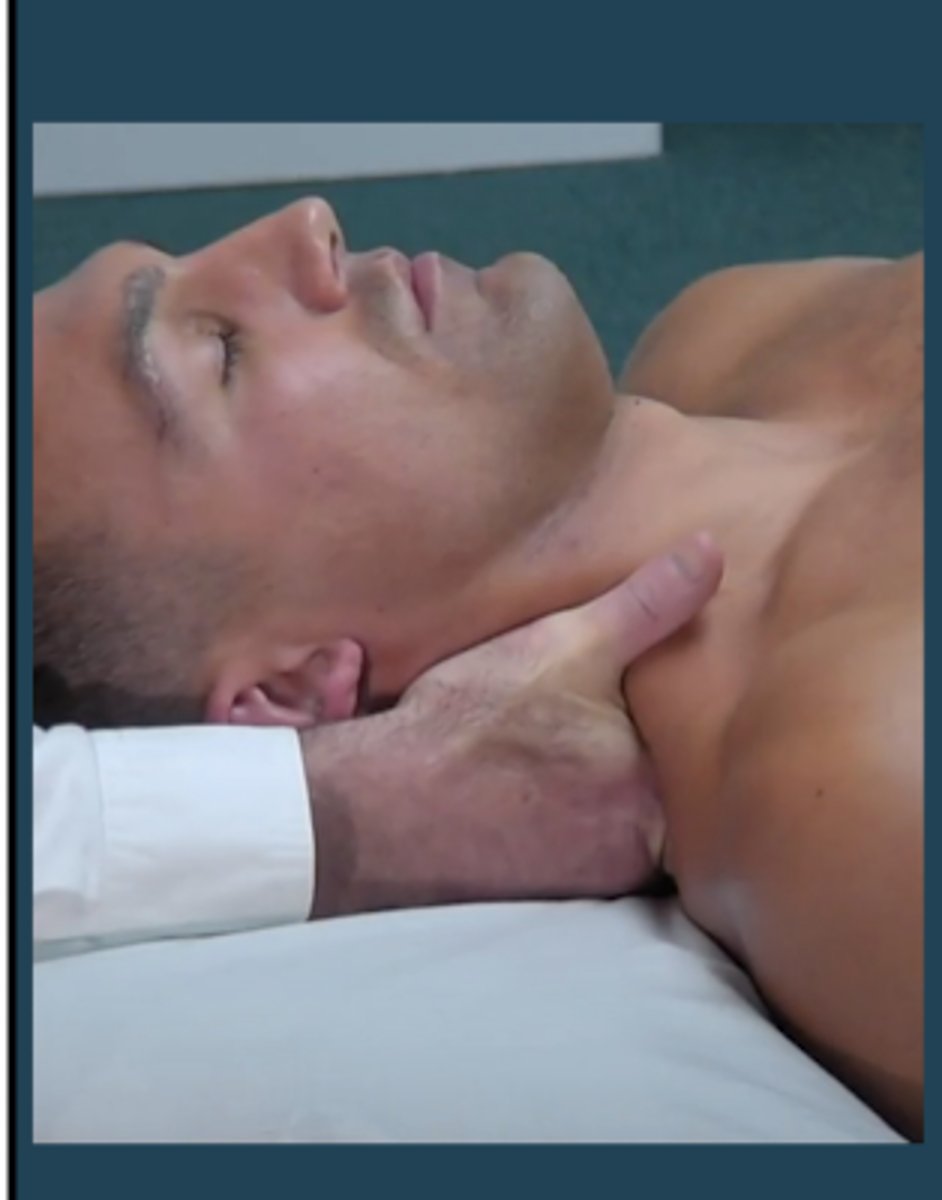
lateral ribs and intercostal spaces of the ribs
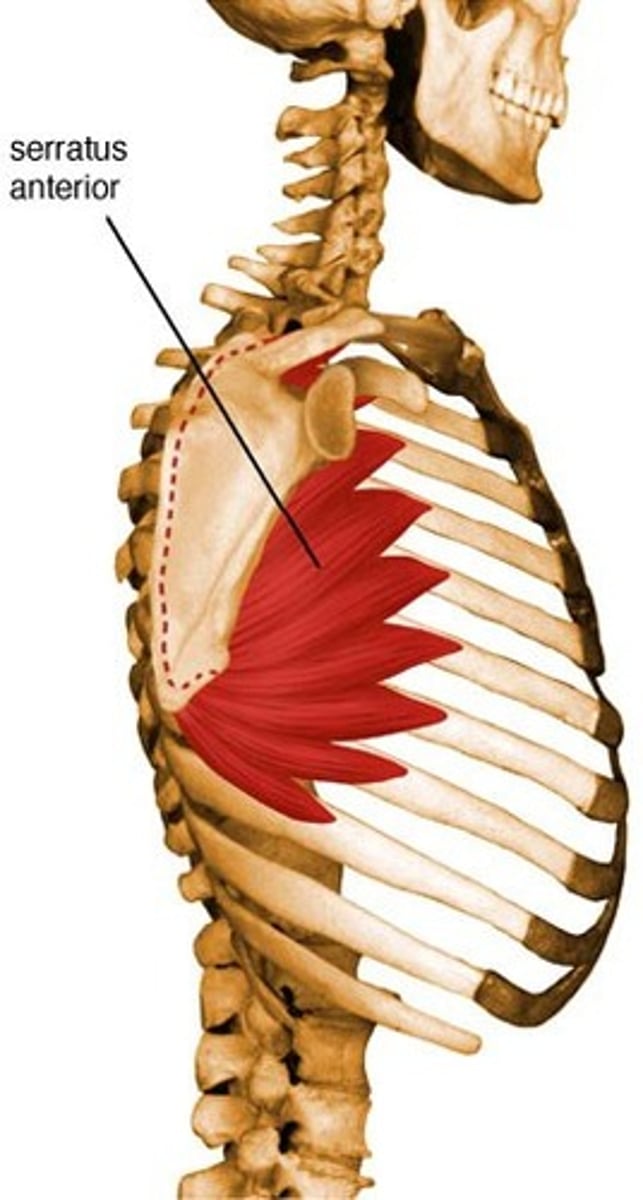
inferior aspect of 10th rib
from xiphoid process, move laterally along inferior border of rib
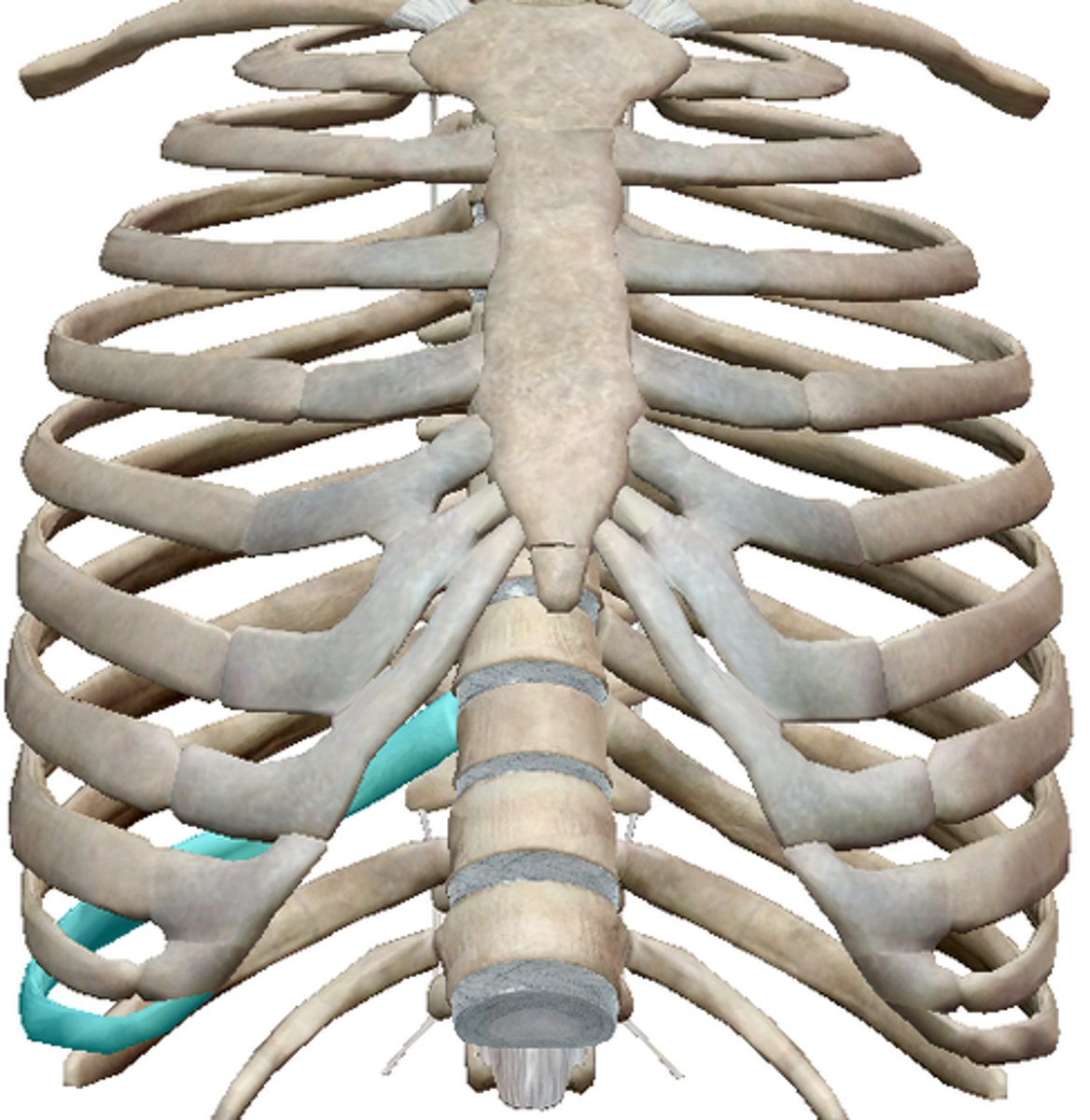
thoracic spinous process T1-T12
spinous process of T3 at level of spine of scapula
spinous process of T7 at level of inferior angle of scapula
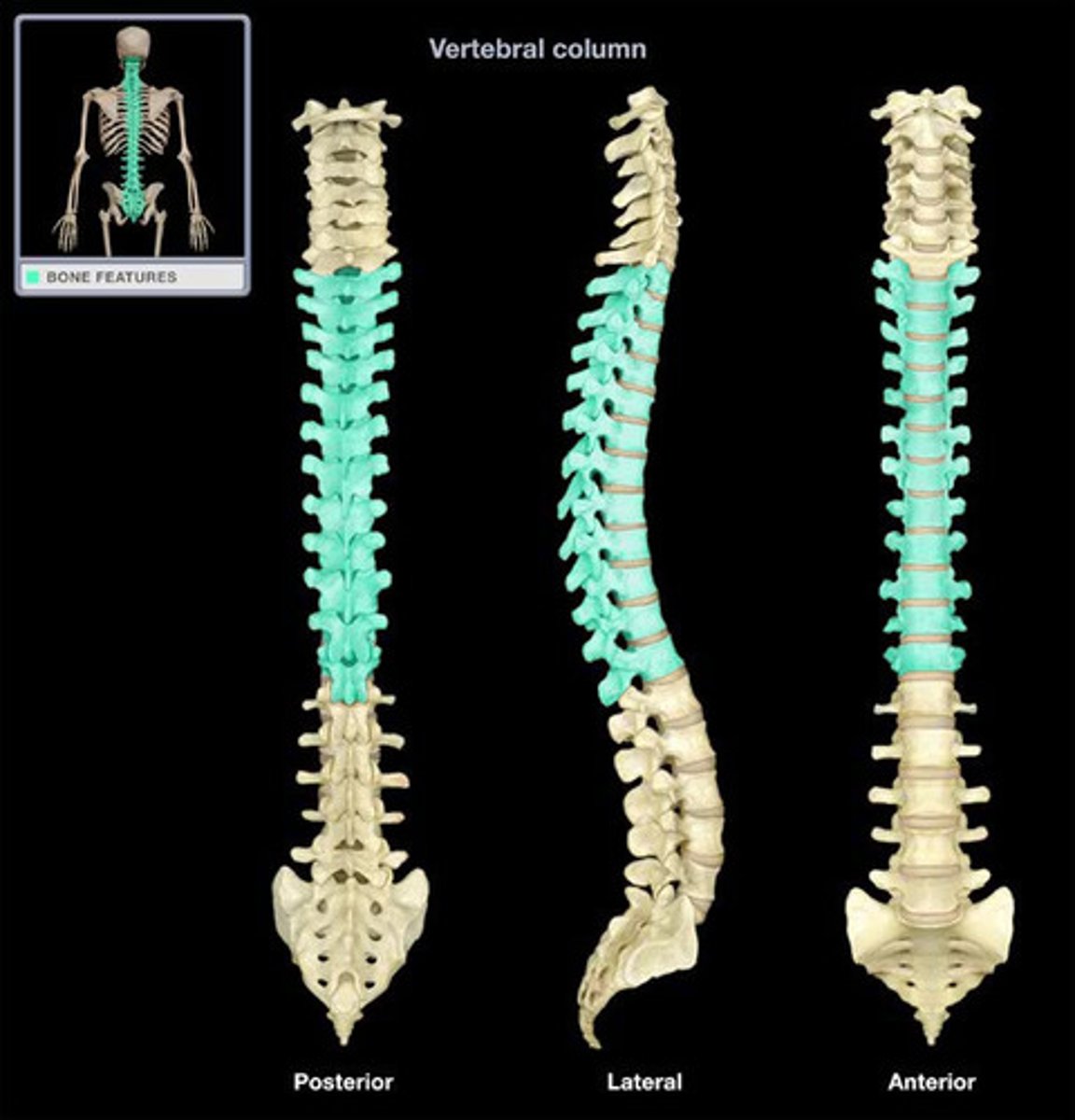
lamina and facet joints of thoracic vertebrae
one finger width lateral to the spinous process
transverse process of thoracic vertebrae
two finger widths lateral to the spinous process
posterior ribs
three finger widths lateral to spinous processes
the rib articulates with the transverse process of the thoracic vertebrae at its same level
ex: rib #6 articulates with the anterior aspect of transverse process of T6
intercostal muscle
palpate in between each rib
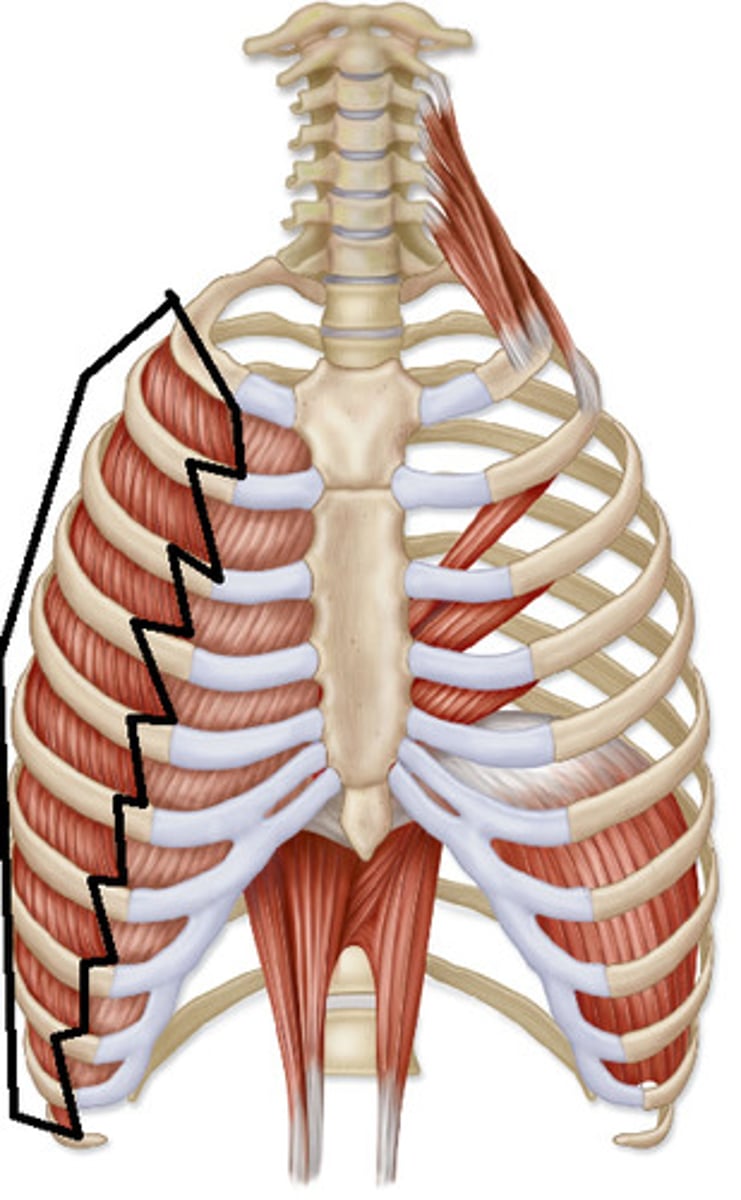
diaphragm
palpate inferior to the 10th rib and pull up
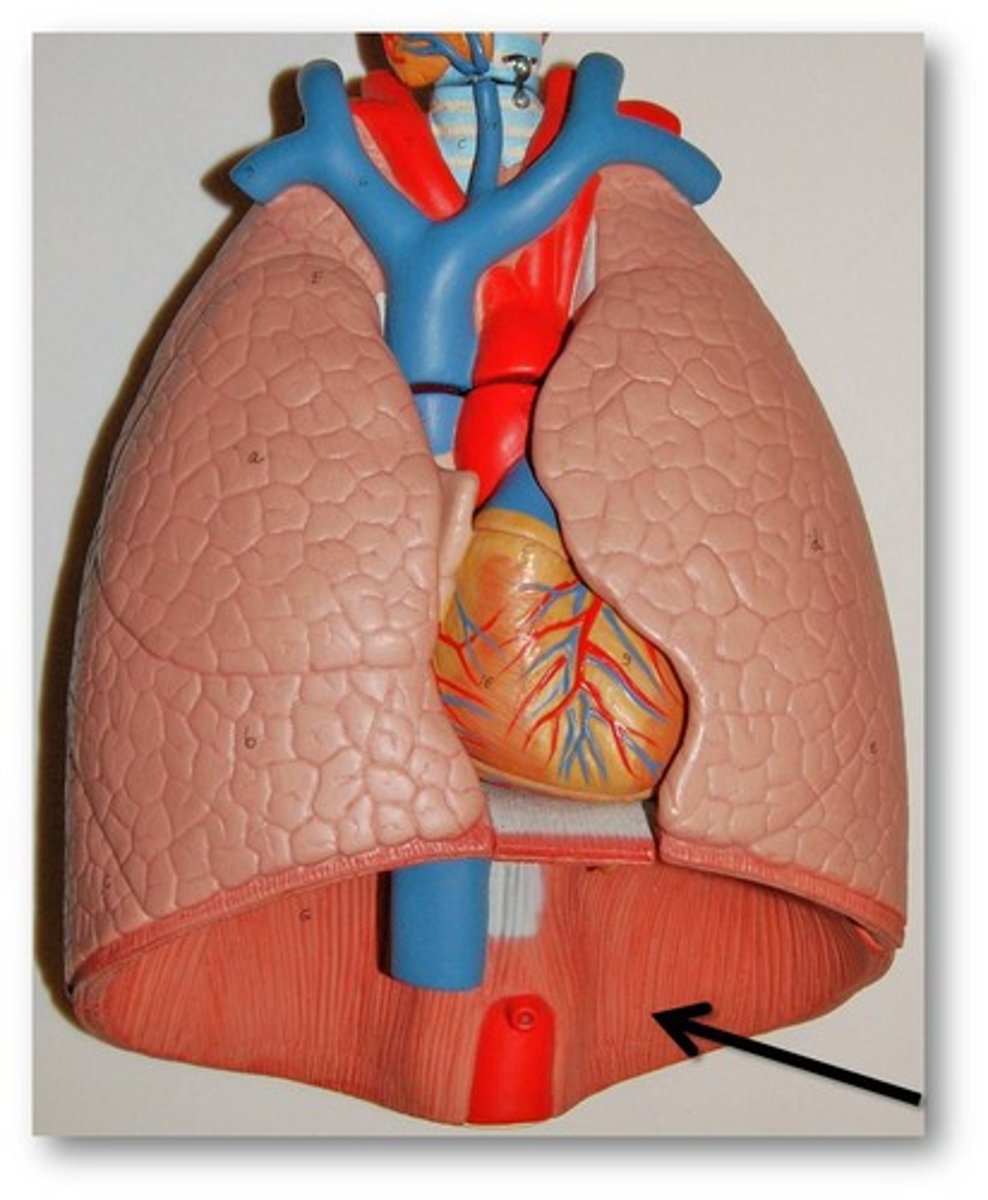
scapular muscles
trapezius, levator scapulae, rhomboideus, serratus anterior, pectoralis minor
erector spinae
unable to differentiate between all the different muscles
palpate them as a group by having subject in prone extend spine
palpate on either side of spinous processes
functional movement assessment
thoracic rotation to right and left
a. with hands clasped out in front
b. arms crossed across chest
c. compare right side to left side
ideal is about 45 degrees of rotation